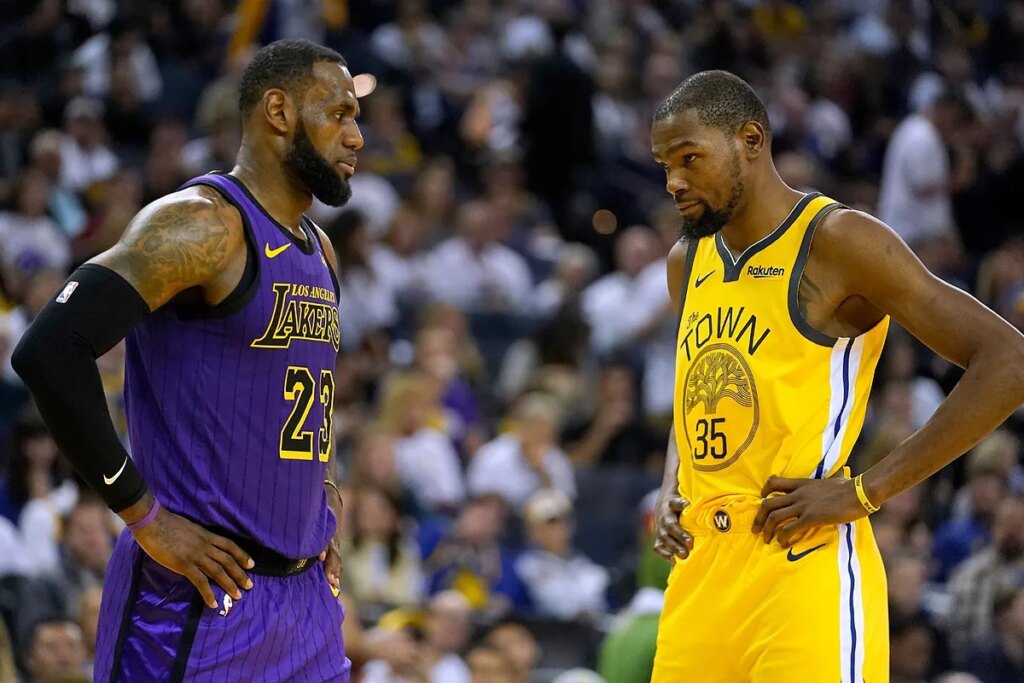Kevin Durant has officially extended his stay with the Houston Rockets, agreeing to a two-year, $90 million contract that includes a player option.
The deal, finalized this week, represents both a long-term commitment from the franchise and a strategic decision by the two-time Finals MVP, who turned down a maximum extension worth approximately $120 million.
Durant‘s decision to take roughly $30 million less than his maximum eligibility underscores his willingness to prioritize team flexibility over individual earnings.
The move allows Houston to retain cap space for future acquisitions and maintain financial balance as the team builds around a mix of veterans and young players.
For the Rockets, the extension secures a proven star while preserving the ability to strengthen the supporting roster in the coming seasons.
At 37, Durant remains one of the league’s most reliable scorers and a key influence in Houston‘s resurgence. The eight-time All-NBA selection averaged over 25 points per game last season and brought leadership to a young roster looking to establish postseason credibility.
His contract choice, however, carries significance beyond Houston, potentially reshaping how other established players, particularly aging superstars, approach their next deals.
LeBron James and the veteran dilemma
Durant’s financial concession has already sparked discussion in Los Angeles, where LeBron James is preparing for the first unrestricted free agency of his 23-year career.
Lakers insider Trevor Lane raised the question on his program The Basketball Bulletin, asking whether James might mirror Durant‘s decision by accepting a reduced salary to give his next team greater roster flexibility.
James, 41, continues to defy age, finishing the 2024-25 campaign with averages of 24.4 points, 7.8 rebounds, and 8.2 assists. Despite his continued production, his advancing age and recent injury concerns make his future uncertain.
Should he choose to remain with the Lakers, a pay cut could facilitate roster improvements, but if he demands his full market value, Los Angeles may face difficult financial decisions. Durant‘s example, meanwhile, places subtle pressure on veterans to consider legacy and team success over salary size.
The Lakers‘ challenges extend beyond James. Shooting guard Austin Reaves is entering his fifth NBA season and the penultimate year of his four-year, $53.8 million contract.
According to league sources, Reaves declined a new four-year offer worth approximately $90 million, positioning himself for a potentially massive deal next offseason.
If he continues to develop as expected, his next contract could approach $240 million over five years, a figure that would significantly impact the Lakers‘ payroll structure.
Reaves‘ trajectory from undrafted player to key contributor has made him indispensable to the franchise, yet his postseason inconsistency last year may give the front office pause before offering a maximum-level extension.
The combination of Reaves‘ pending negotiations and James‘ uncertain status could define the Lakers‘ strategic direction next summer.
Durant‘s reduced extension in Houston, therefore, reverberates across the league. It demonstrates how elite veterans can influence salary trends and organizational priorities.
As teams weigh competitiveness against financial restraint, the Rockets‘ and Lakers‘ next moves will help determine how the NBA’s balance of talent and spending evolves in the seasons ahead.
Read the full article here

